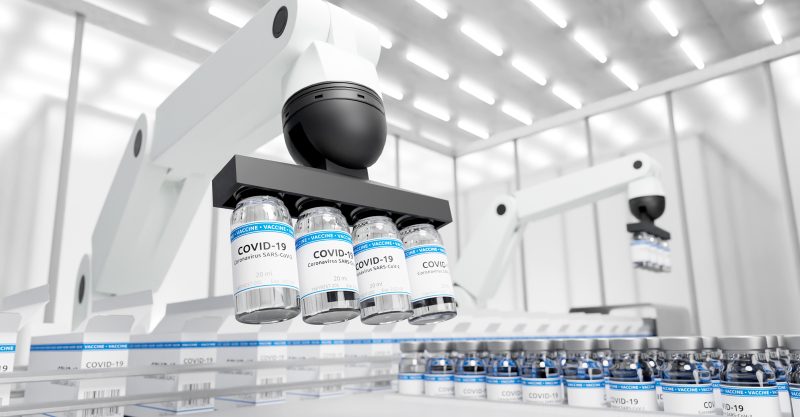Current regulations require that before pharmaceutical companies can take their products to market, their manufacturing plants must pass a compliance inspection by the U.S. Food and Drug Administration (FDA).
The only way a company can bypass the inspection is if the FDA approves the company’s drug for “emergency” use. The FDA’s Emergency Use Authorization is limited to situations “when there are no adequate, approved and available alternatives.”
That’s why drugmakers in the running to produce a COVID-19 vaccine or therapeutic are also racing to be the first to get FDA Emergency Use Authorization — not just because it would allow them to skip the mandatory plant inspections, but also because once the FDA grants the authorization for one vaccine or one therapeutic, no other company can get it.
On Tuesday, Associated Press reported that Pfizer plans to seek emergency use authorization in November, Albert Bourla reportedly told investors he doesn’t know whether Pfizer will be the first company to get that authorization.
Once a drugmaker gets emergency use authorization for a drug or vaccine, the FDA waives the mandatory manufacturing plant inspection, leaving the drugmaker solely responsible for certifying the safety of the manufacturing process.
Eli Lilly, which has been working on a COVID therapeutic drug, recently had a run-in with the FDA over problems with one of its manufacturing plants. Reuters reported earlier this month that the FDA had cited “serious quality control problems” at an Eli Lilly plant working on an antibody therapy.
A former associate counsel at the FDA told Reuters the violations were “serious enough and have a significant enough impact on the public health that something needs to be fixed.” If Eli Lilly wins approval of its COVID antibody drug, the company plans to partner with the Gates Foundation to send the drugs to low-and middle-income countries.
So far, no vaccine maker is yet ready to start production of a COVID vaccine, and several that are working on developing vaccines have encountered problems with their clinical trials.
For example, AstraZeneca’s trials were halted after a trial participant developed a neurological disorder consistent with that of transverse myelitis. Transverse myelitis often results in weakness of the limbs, problems emptying the bladder and paralysis. Patients can become severely disabled and there is currently no effective cure.
And in May, as Children’s Health Defense reported, Moderna experienced a 20% “serious” injury rate in one of its COVID vaccine trials:
“The vaccine, developed and championed by Anthony Fauci and financed by Bill Gates, used an experimental mRNA technology that the two men hoped would allow rapid deployment to meet President Trump’s ambitious “warp speed” timeline. Dr. Fauci was so confident of his shot’s safety that he waived ferret and primate studies (Moderna suspiciously reported no specific health data from its mouse studies). That appears to have been a mistake.”
Moderna’s COVID vaccine technology has never been approved for use on humans — and the drugmaker’s manufacturing plant has never been inspected by government regulators — but the company is also in the running for FDA’s emergency approval, according to the Associated Press.
Pharmaceutical companies working on COVID-19 vaccines and therapeutics are protected from liability for vaccine injuries under the Public Readiness and Emergency Preparedness Act (PREP Act).
__________________________________________
Jeremy Loffredo is a reporter for The Defender.


This of course is only in the USA, leader of the ‘free world”, ready to make profits, destroy people and never obey international law because it is so exceptional.